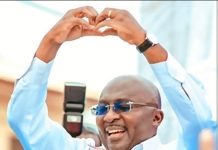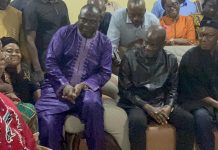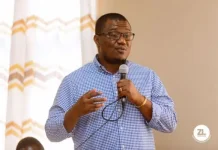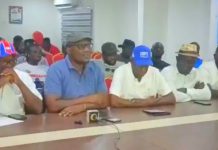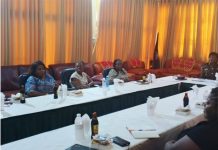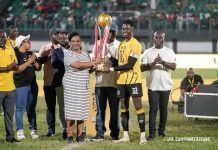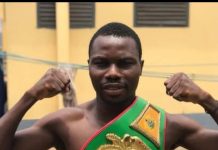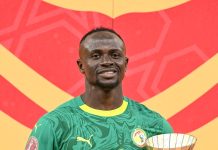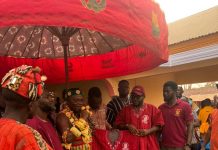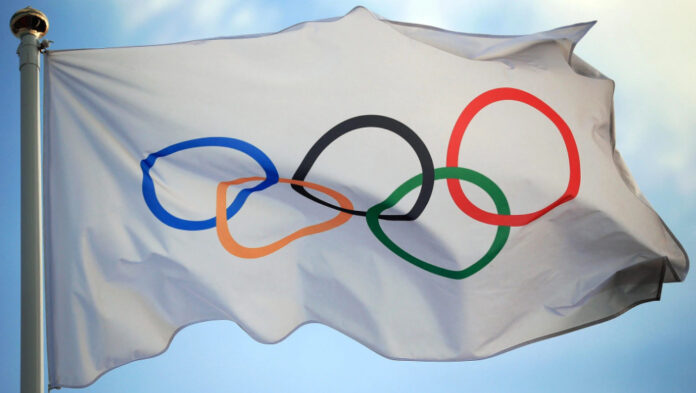At the invitation of the International Olympic Committee (IOC), the leading representatives of the Olympic Movement met today for the 11th Olympic Summit, which was held in person.
Chaired by the IOC President, the Olympic Summit involves the leading representatives of the Olympic Movement. It forms part of the ongoing dialogue and consultation on subjects of significance for the future of the Olympic Movement.
STATE OF THE OLYMPIC MOVEMENT
The Olympic Summit analysed in detail the impact of the consequences of the Russian invasion of Ukraine. The vast majority of the participants agreed that the sanctions against the Russian and Belarusian states and governments, as those responsible for this blatant breach of the Olympic Truce and the Olympic Charter, must remain firmly in place. These sanctions include:
No international sports events are being organised or supported by an International Federation (IF) or National Olympic Committee (NOC) in Russia or Belarus.
No flag, anthem, colours or any other identifications of these countries being displayed at any sports event or meeting.
As a reminder, the sanctions also include the unprecedented decision by the IOC to withdraw the Olympic Orders from the President of the Russian Federation and from the Deputy Prime Minister.
The Summit also concluded that the solidarity efforts of all the stakeholders of the Olympic Movement – under the leadership of the IOC – for the Ukrainian athletes and the Ukrainian Olympic community, as committed by the IOC President during his visit to Kyiv to the Ukrainian athletes and the Ukrainian President, will continue with full force in order to have a strong team from the NOC of Ukraine at the Olympic Games Paris 2024 and the Olympic Winter Games Milano Cortina 2026.
There followed an intense debate about the participation of athletes from Russia and Belarus in international competitions. The Olympic Movement had to take the protective measures of not inviting athletes from these NOCs because, on the one hand, some governments were deciding and still decide which athletes can participate in international competitions, and which athletes cannot.
The Summit strongly rejected these measures by governments as unacceptable interference in the autonomy of sports organisations and their political neutrality. The Summit emphasised that participation in sports competitions must be based exclusively on the sporting merits of an athlete and respect for the rules of sport.
Another reason for the protective measures was that, in some countries, the safety and security of athletes from Russia and Belarus could not be guaranteed anymore.
These protective measures put the Olympic Movement in a grave dilemma. All athletes had to be protected from political interference. The integrity of sports competitions had to be ensured. This led the IOC to act against its mission to unify the entire world in peaceful competition since it had to prohibit athletes from participation because of their passports only.
The participants of the Summit discussed in detail whether the reasons for these protective measures still exist and explored different ways as to how to overcome this extremely grave dilemma. This debate was informed by:
The adoption of the “Sport as an enabler of sustainable development” resolution (A/77/L.28) by the United Nations General Assembly (UNGA) on 1 December 2022 in New York. This resolution recognised that major international sports events “should be organised in the spirit of peace” and “that the unifying and conciliative nature of such events should be respected”. It also supports the political neutrality of the Olympic Movement and “the independence and autonomy of sport as well as the mission of the International Olympic Committee in leading the Olympic Movement”.
The resolution was passed by consensus by all members of the 77th session of the UN General Assembly, which is remarkable, as this includes Russia and Ukraine.
Remarks by Csaba Kőrösi, President of the 77th Session of the UNGA, who said: “I encourage all Member States to preserve the unifying spirit of sports and the Olympic Movement. It is far more promising to the world if nations compete on the fields of sports than on the battle fields. The former makes us more noble and stronger, the latter leaves death and devastation behind.”
The statement by the Chair of the G20, Indonesia’s President Joko Widodo – following an address by the IOC President – in which the Indonesian President expressed his support for the political neutrality of sport, while at the same time emphasising the unifying power of the Olympic and Paralympic Games.
The statement by Emmanuel Macron, President of France – the host of the next Olympic and Paralympic Games – who said: “Sport should not be politicised. These major events are meant to allow athletes from all countries, sometimes including countries at war, to bring sport to life. Also, to find, through sport, ways of discussing where people can no longer talk to each other – I think that should be preserved.”
A letter by the Special Rapporteur in the field of cultural rights and the Special Rapporteur on contemporary forms of racism, racial discrimination, xenophobia and related intolerance of the United Nations Human Rights Council. They express “serious concern about the recommendation to ban Russian and Belarusian athletes and officials such as judges from international competitions, based solely on their nationality, as a matter of principle. This raises serious issues of non-discrimination.”
The participation of many athletes from Russia and Belarus in national leagues abroad, and in different international sports competitions, including in cycling and tennis.
The encouragement and expectation expressed by so many leaders and people from Asia, Africa, the Americas, Oceania and parts of Europe who consider sport to be a unifying force of major importance in these divisive and highly confrontational times. Many of them refer to this peace mission of the Olympic Movement, which was put into action most recently at the Olympic Winter Games PyeongChang 2018 by unifying the teams of the NOCs of the Republic of Korea and the Democratic People’s Republic of Korea in a joint march at the Opening Ceremony behind the Korean Unification Flag, while their countries were and still are in a state of war.
In the course of the debate, the Acting President of the Olympic Council of Asia (OCA) stated that, on the Asian continent, the reasons for the protective measures no longer exist. The OCA offered to facilitate the participation of athletes from Russia and Belarus in competitions in Asia under its authority, while respecting the sanctions in place.
Representatives from the IFs welcomed this initiative, stating that, for some IFs and for hosts of their competitions, the same reasoning would apply, and that therefore there should not be a one-size-fits-all solution, but that each IF should carefully evaluate for its sport whether the reasons for the protective measures still exist.
The President of the Association of National Olympic Committees (ANOC) welcomed the OCA initiative as a major step to re-establish the unity of all 206 National Olympic Committees.
The Chair of the IOC Athletes’ Commission (AC) said that the IOC AC represents athletes from all 206 NOCs and the IOC Refugee Olympic Team, which was reflected in the Commission’s discussions. In this context, the IOC AC welcomes the exploration of the initiative as a way to live up to the Olympic mission to unite athletes from all around the world in peaceful competition, while noting that there are different views among the athlete community.
The other representatives present, including the European Olympic Committees (EOC) President and the President of the Association of National Olympic Committees of Africa, supported the views expressed.
The President of the World Anti-Doping Agency (WADA) informed the summit that 31,112 tests had been conducted in- and out-of-competition on Russian athletes between 1 January 2021 to date. These tests have been coordinated by different entities under their respective authority, and all samples have been and continue to be analysed in WADA-accredited laboratories outside Russia.
The IOC President thanked all the participants for the open, frank and constructive debate. In particular, he thanked the OCA for its creative initiative and proposed the following conclusions to be issued by the Olympic Summit:
The vast majority of the Olympic Summit participants confirm:
That the sanctions against the Russian and Belarusian states and governments remain firmly in place;
they also confirmed the full commitment to solidarity with the Ukrainian athletes and the Ukrainian Olympic community in order to have a strong team from the NOC of Ukraine at the Olympic Games Paris 2024 and the Olympic Winter Games Milano Cortina 2026.
The Summit unanimously agreed the following:
The IOC to lead the further exploration of the OCA initiative concerning the participation of athletes who are in full respect of the Olympic Charter and the sanctions. This initiative to be discussed in the next round of IOC consultation calls with the IOC Members, the athletes’ representatives, the International Federations and the National Olympic Committees.
The IOC Executive Board to take today’s discussion and the following comprehensive consultations fully into account when reviewing the protective measures concerning athletes’ participation in competitions.
All the participants of the Olympic Summit to commit to follow these reviewed recommendations in order to ensure the unity of the Olympic Movement in its pursuit of its unifying peace mission.
THE OLYMPIC GAMES
Olympic Winter Games Beijing 2022
Participants were informed about the success of the Olympic Winter Games Beijing 2022. The vision expressed from the time of the candidature has fully materialised when it comes to the development of winter sport in China. More than 350 million Chinese citizens have now participated in winter sports activities, and the trend continues upwards.
The sustainability and legacy agenda, which has remained an absolute priority for the organisers, has fully materialised, with many benefits for the host communities.
During the Games, new heights were achieved on the media front, with a record of 2.01 billion viewers on the linear and digital platforms of the Media Rights-Holders (MRHs) and 3.2 billion engagements with Olympic social media handles during the Games.
The Chair of the Coordination Commission provided an overview of the measures and recommendations directed towards the organisers of future Olympic Winter Games. These build on Olympic Agenda 2020+5 and the final Tokyo 2020 Coordination Commission report.
Finally, the Summit expressed its utmost appreciation for the outstanding efforts of the Organising Committee and the Chinese Olympic Committee in seamless cooperation with the IOC and the Olympic Movement. These Games offered the most outstanding conditions for the athletes in an absolutely safe and secure environment.
Olympic Games Paris 2024
The Chair of the Paris 2024 Coordination Commission informed the Summit that Paris 2024 has concluded 2022 with the successful launch of the mascots and very strong interest from the public in the sign-up process for the tickets draw, a reminder that these Games will be inclusive, exciting and innovative.
The Summit was also informed that, as a result of the efforts of all parties concerned, the Organising Committee budget remains balanced, while at the same time fully preserving the initial ambitions of the project. This is reassuring in the current context of inflation and the challenging overall economic background.
The Summit expressed its full support for the Olympic Games Paris 2024 and looks forward to them being Olympic Games of a new era: inclusive, youthful, urban, gender balanced and sustainable, taking every aspect of Olympic Agenda 2020 and Olympic Agenda 2020+5 into account.
Olympic Winter Games 2030
The Summit was informed by the Chair of the Future Host Commission for the Olympic Winter Games about interest for future Games. At this stage, the IOC remains in Continuous Dialogue with several well-developed projects by parties that have expressed interest in the Olympic Winter Games 2030 and with whom intense collaboration is ongoing.
The Summit was also informed that the Commission is looking into challenges and opportunities facing future Olympic Winter Games, such as the impact of climate change. A number of proposals which could have an impact on future elections were discussed, including rotation of the Games within a certain pool of hosts, minimum climate conditions and existing infrastructure criteria.
Upon the request of the Commission, the IOC Executive Board decided to give the Commission more time to study all these factors to make the best possible decisions about future hosting, including a revised 2030 election timeframe.
Consideration was also given to the notion of a double award for 2030/2034 to create stability for winter sports and the Olympic Winter Games. Considering the opportunities and challenges this could present, no conclusion was reached, as this requires further exploration.
These considerations by the IOC Executive Board and the Future Host Commission for the Olympic Winter Games were welcomed and supported by the Summit.
Games optimisation
Following the final Tokyo 2020 Coordination Commission report, a Games Optimisation Group was created in the summer. It will be looking into optimisation opportunities across the Olympic Games and Youth Olympic Games. The involvement of future Organising Committees and Olympic Movement stakeholders is key to this effort, and all of them are represented in the membership of the Games Optimisation Group, chaired by Kirsty Coventry. Although the objective is to look into opportunities for future Olympic Games, the implementation of optimisation measures will also benefit current organisers.
The Summit welcomed the fact that the IOC is looking into optimising the Olympic Games for the benefit of athletes and all stakeholders.
SPORT
Olympic Esports Week 2023
The Summit received the current planning for the inaugural Olympic Esports Week, taking place in Singapore between 22 and 25 June 2023 and representing the next major step in supporting the development of virtual sports within the Olympic Movement.
In partnership with the Ministry of Culture, Community and Youth, Sport Singapore and the Singapore National Olympic Committee (SNOC), Olympic Esports Week will showcase the best of virtual sports – across show matches, exhibitions and a free-to-play zone – creating opportunities to highlight how technology and innovations in electronic forms of sport can give the possibility to reach new audiences, promote sporting activity and entertain people around the world.
A highlight of Olympic Esports Week will be the first in-person live finals of the Olympic Esports Series, the global virtual and simulated sports competition. Building on the successes of the Olympic Virtual Series in 2021, this edition will give the opportunity to more IFs to be involved in an expanded sports programme.
Olympic Esports Week was considered by the Olympic Summit as an important engagement platform for the IOC and the International Federations involved, in order to connect with a new audience.
Olympic Qualifier Series and Season
Preparations for the Olympic Qualifier Series continue, in particular with discussions with cities interested in hosting the events. The final selection of hosts and announcement of the schedule is due in early 2023, with the events planned to take place in 2024 ahead of the Olympic Games Paris 2024.
The Summit received an update on the Olympic Qualifier Season, and the digital and visual promotion of Paris 2024 Olympic qualification events.
A number of activations have taken place across Olympic qualification events over recent months and, working in close partnership with the respective International Federations, the IOC has generated over 100 million additional engagements across Olympic social media platforms, directly promoting the Olympic qualification events and the athletes themselves.
The Summit noted the enormous benefit this increased promotion and engagement gave to the events, the IFs and the athletes themselves, highlighting that the #RoadtoParis2024 is well underway.
GOOD GOVERNANCE
Anti-doping
The Summit welcomed the World Anti-Doping Agency (WADA)’s update on the progress of implementing its governance reforms and the organisation’s continued focus on athletes.
The Summit also took note of the update on RUSADA and was informed that, during the past two years, Russian athletes continued to be tested by different entities and all collected samples were and continue to be analysed outside Russia.
The Summit was also pleased to hear that, after the turmoil of COVID-19, out-of-competition testing was now at a level significantly higher than in 2019 – prior to the pandemic. The Summit welcomed the WADA President’s pledge for more innovative research and focus on capacity building, including education targeting not only athletes but their entourages.
On this point, the Olympic Summit underlined in particular the importance of working to ensure that the entourage can be held to the same level of accountability as athletes.
The Summit was informed that the anti-doping programme for the Olympic Winter Games Beijing 2022 carried out by the International Testing Agency (ITA) had been fully and successfully implemented, despite the challenging COVID-19 circumstances. The comprehensive pre-Games testing programme and the long-term storage of samples, building on the experience of Tokyo 2020, were also welcomed.
The Summit recognised the important work of the ITA in strengthening the Olympic Movement’s fight against doping, and called for all IFs, Continental Associations and other major sports event organisers to increase their cooperation with the ITA.
Lausanne, 9 December 2022
LIST OF PARTICIPANTS
IOC President
Thomas BACH (Chair)
IOC Vice-Presidents
Ser Miang NG
John COATES
Nicole HOEVERTSZ
Juan-Antonio SAMARANCH
IOC Executive Board members
Emma TERHO, Chair of the IOC Athletes’ Commission
Nenad LALOVIĆ, President of an Olympic Summer Sports Federation
International Federations
Morinari WATANABE, President of the FIG
Gianni INFANTINO, President of FIFA (excused)
Husain AL-MUSALLAM, President of FINA
Sebastian COE, President of World Athletics (excused)
Luc TARDIF, President of the IIHF
Jae-Youl KIM, President of the ISU
Johan ELIASCH, President of the FIS
National Olympic Committees
GAO Zhidan, President of the Chinese Olympic Committee
Susanne LYONS and Gene SYKES, President and President Elect of the United States Olympic and Paralympic Committee
Stanislav POZDNYAKOV, President of the Russian Olympic Committee
Recognised Organisations
Andrew PARSONS, President of the IPC
Ivo FERRIANI President of AIOWF
Francesco RICCI BITTI, President of ASOIF
Robin MITCHELL, President of ANOC
Continental Associations of National Olympic Committees
Mustapha BERRAF, President of ANOCA
Spyros CAPRALOS, President of the EOC
Neven ILIC, President of Panam Sports
Randhir SINGH, Acting President of the OCA
Guests
Pierre-Olivier BECKERS, Chair of the IOC Coordination Commission for Paris 2024
Kirsty COVENTRY, Chair of the Games Optimisation Group
Octavian MORARIU, Chair of the Future Host Commission for the Olympic Winter Games
David LAPPARTIENT, President of the UCI and Chair of the Esports and Gaming Liaison Group
Witold BAŃKA, President of WADA
Valérie FOURNEYRON, Chair of the International Testing Agency
The International Olympic Committee is a not-for-profit, civil, non-governmental, international organisation made up of volunteers which is committed to building a better world through sport. It redistributes more than 90 per cent of its income to the wider sporting movement, which means that every day the equivalent of USD 4.2 million goes to help athletes and sports organisations at all levels around the world.
For more information, please contact the IOC Media Relations Team.



